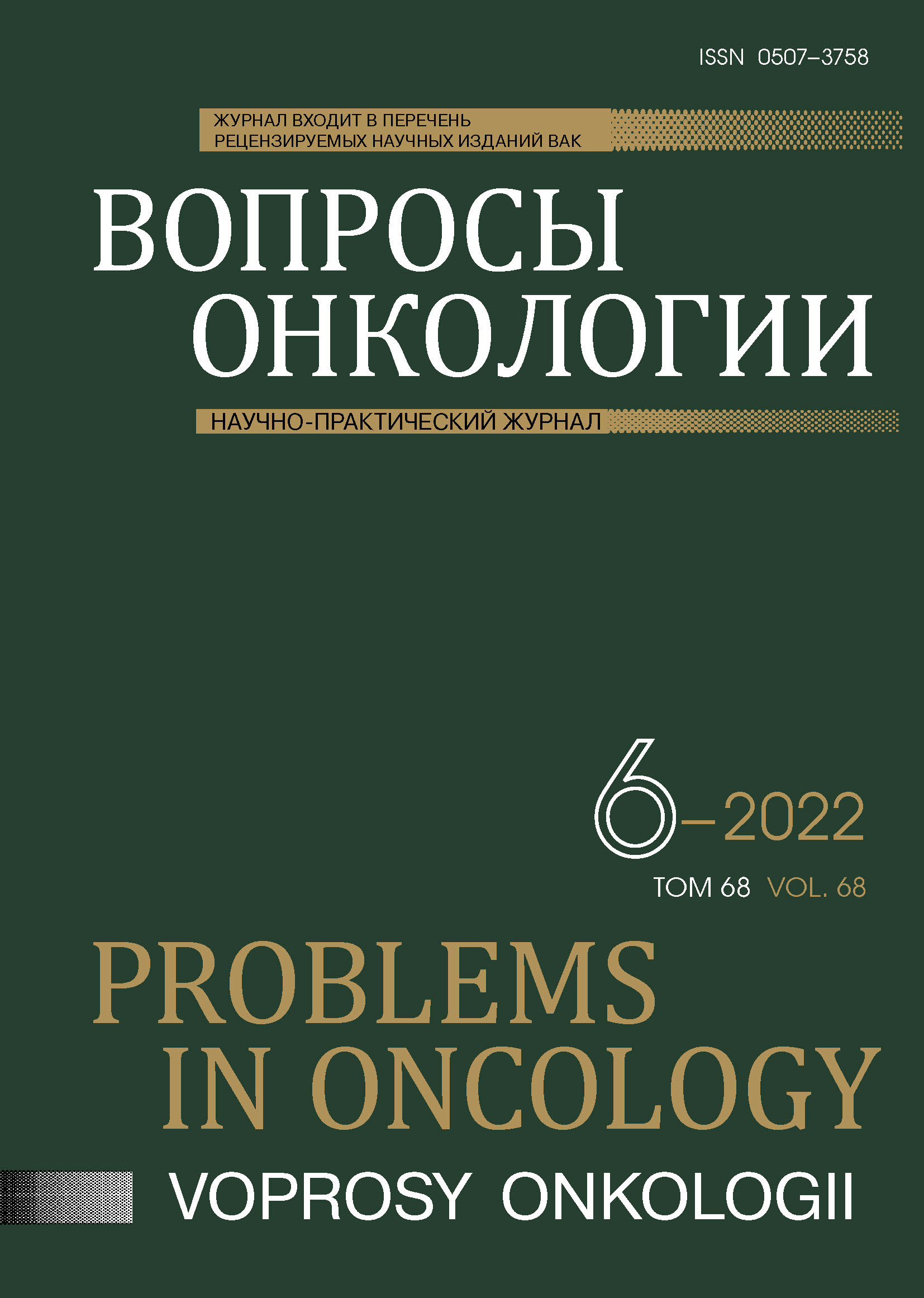Аннотация
Выбор оптимальной тактики лекарственного лечения для онкологических пациентов зависит не только от сведений о потенциальной клинической эффективности тех или иных фармакологических субстанций, но и от целого ряда сопутствующих нюансов, в частности, перечня зарегистрированных медицинских показаний, стоимости препаратов и их фактической доступности. В случае невозможности использования общепринятых лекарственных схем возникает необходимость поиска альтернативных, схожих по эффективности способов лечения. В данной работе рассматриваются примеры потенциальной взаимозаменяемости противоопухолевых препаратов, а также обсуждаются возможности уменьшения стоимости терапии без ущерба для её клинической эффективности.
Библиографические ссылки
Государственный реестр лекарственных средств (ГРЛС) [Электронный ресурс]. URL: https://grls.rosminzdrav.ru. (Дата обращения: 03.07.2022) [State Register of Medicinal Remedies (SRMR): [electronic source]. URL: https://grls.rosminzdrav.ru. (Access date: 03.07.2022).
Chic N, Mezquita L, Aldea M et al. Successful Switch to Vemurafenib Plus Cobimetinib After Dabrafenib Plus Trametinib Toxicity in BRAFV600E-Mutant Metastatic Non-Small-Cell Lung Cancer // Clin Lung Cancer. 2021;22(1):e54–e56. doi:10.1016/j.cllc.2020.07.013
García-Foncillas J, Sunakawa Y, Aderka D et al. Distinguishing Features of Cetuximab and Panitumumab in Colorectal Cancer and Other Solid Tumors // Front Oncol. 2019;9:849. doi:10.3389/fonc.2019.00849
Salama H, Fahed Alzayed M, Alharbi KG et al. Erdheim-Chester Disease Successfully Treated with Front-Line Single-Agent Dabrafenib // Am J Case Rep. 2022;23:e935090. doi:10.12659/AJCR.935090
Shiravand Y, Khodadadi F, Kashani SMA et al. Immune Checkpoint Inhibitors in Cancer Therapy // Curr Oncol. 2022;29(5):3044–3060. doi:10.3390/curroncol29050247
Tjulandin S, Demidov L, Moiseyenko V et al. Novel PD-1 inhibitor prolgolimab: expanding non-resectable/metastatic melanoma therapy choice // Eur J Cancer. 2021;149:222–232. doi:10.1016/j.ejca.2021.02.030
Schachter J, Ribas A, Long GV et al. Pembrolizumab versus ipilimumab for advanced melanoma: final overall survival results of a multicentre, randomised, open-label phase 3 study (KEYNOTE-006) // Lancet. 2017;390(10105):1853–1862. doi:10.1016/S0140-6736(17)31601-X
Larkin J, Chiarion-Sileni V, Gonzalez R et al. Combined Nivolumab and Ipilimumab or Monotherapy in Untreated Melanoma // N Engl J Med. 2015;373(1):23–34. doi:10.1056/NEJMoa1504030
Imyanitov E, Sokolenko A. Mechanisms of acquired resistance of BRCA1/2-driven tumors to platinum compounds and PARP inhibitors // World J Clin Oncol. 2021;12(7):544–556. doi:10.5306/wjco.v12.i7.544
Chan CY, Tan KV, Cornelissen B. PARP Inhibitors in Cancer Diagnosis and Therapy // Clin Cancer Res. 2021;27(6):1585–1594. doi:10.1158/1078-0432.CCR-20-2766
Imyanitov EN. Cytotoxic and targeted therapy for BRCA1/2-driven cancers // Hered Cancer Clin Pract. 2021;19(1):36. doi:10.1186/s13053-021-00193-y
Imyanitov EN, Iyevleva AG. Molecular tests for prediction of tumor sensitivity to cytotoxic drugs // Cancer Lett. 2022;526:41–52. doi:10.1016/j.canlet.2021.11.021
Gyawali B. The OlympiAD trial: who won the gold? // Ecancermedicalscience. 2017;11:ed75. doi:10.3332/ecancer.2017.ed75
Cecere SC, Giannone G, Salutari V et al. Olaparib as maintenance therapy in patients with BRCA 1–2 mutated recurrent platinum sensitive ovarian cancer: Real world data and post progression outcome // Gynecol Oncol. 2020;156(1):38–44. doi:10.1016/j.ygyno.2019.10.023
Ramalingam SS, Vansteenkiste J, Planchard D et al. Overall Survival with Osimertinib in Untreated, EGFR-Mutated Advanced NSCLC // N Engl J Med. 2020;382(1):41–50. doi:10.1056/NEJMoa1913662
Hochmair MJ, Morabito A, Hao D et al. Sequential afatinib and osimertinib in patients with EGFR mutation-positive non-small-cell lung cancer: final analysis of the GioTag study // Future Oncol. 2020;16(34):2799–2808. doi:10.2217/fon-2020-0740
Girard N, Moro-Sibilot D, Bouée S et al. Treatment sequence of first and second generation tyrosine kinase inhibitor followed by osimertinib in EGFR-mutated non-small-cell lung cancer: a real life study // Future Oncol. 2020;16(16):1115–1124. doi:10.2217/fon-2020-0084
Ito K, Morise M, Wakuda K et al. A multicenter cohort study of osimertinib compared with afatinib as first-line treatment for EGFR-mutated non-small-cell lung cancer from practical dataset: CJLSG1903 // ESMO Open. 2021;6(3):100115. doi:10.1016/j.esmoop.2021.100115
Duruisseaux M, Besse B, Cadranel J et al. Overall survival with crizotinib and next-generation ALK inhibitors in ALK-positive non-small-cell lung cancer (IFCT-1302 CLINALK): a French nationwide cohort retrospective study // Oncotarget. 2017;8(13):21903–21917. doi:10.18632/oncotarget.15746
Mok T, Camidge DR, Gadgeel SM et al. Updated overall survival and final progression-free survival data for patients with treatment-naive advanced ALK-positive non-small-cell lung cancer in the ALEX study // Ann Oncol. 2020;31(8):1056–1064. doi:10.1016/j.annonc.2020.04.478
Orlov SV, Iyevleva AG, Filippova EA. et al. Efficacy of lorlatinib in lung carcinomas carrying distinct ALK translocation variants: The results of a single-center study // Transl Oncol. 2021;14(8):101121. doi:10.1016/j.tranon.2021.101121
Dummer R, Hauschild A, Santinami M et al. Five-Year Analysis of Adjuvant Dabrafenib plus Trametinib in Stage III Melanoma // N Engl J Med. 2020;383(12):1139–1148. doi:10.1056/NEJMoa2005493
Wu YL, Tsuboi M, He J et al. Osimertinib in Resected EGFR-Mutated Non-Small-Cell Lung Cancer // N Engl J Med. 2020;383(18):1711–1723. doi:10.1056/NEJMoa2027071
Mojtahed SA, Boyer NR, Rao SA et al. Cost-Effectiveness Analysis of Adjuvant Therapy for BRAF-Mutant Resected Stage III Melanoma in Medicare Patients // Ann Surg Oncol. 2021;28(13):9039–9047. doi:10.1245/s10434-021-10288-4
Neal JW, Costa DB, Muzikansky A et al. Randomized Phase II Study of 3 Months or 2 Years of Adjuvant Afatinib in Patients With Surgically Resected Stage I–III EGFR-Mutant Non-Small-Cell Lung Cancer // JCO Precis Oncol. 2021;5:325–332. doi:10.1200/PO.20.00301
Piccart M, Procter M, Fumagalli D et al. Adjuvant Pertuzumab and Trastuzumab in Early HER2-Positive Breast Cancer in the APHINITY Trial: 6 Years' Follow-Up // J Clin Oncol. 2021;39(13):1448–1457. doi:10.1200/JCO.20.01204
Tutt ANJ, Garber JE, Kaufman B et al. Adjuvant Olaparib for Patients with BRCA1- or BRCA2-Mutated Breast Cancer // N Engl J Med. 2021;384(25):2394–2405. doi:10.1056/NEJMoa2105215
Le DT, Durham JN, Smith KN et al. Mismatch repair deficiency predicts response of solid tumors to PD-1 blockade // Science. 2017;357(6349):409–413. doi:10.1126/science.aan6733
Marabelle A, Fakih M, Lopez J et al. Association of tumour mutational burden with outcomes in patients with advanced solid tumours treated with pembrolizumab: prospective biomarker analysis of the multicohort, open-label, phase 2 KEYNOTE-158 study // Lancet Oncol. 2020;21(10):1353–1365. doi:10.1016/S1470-2045(20)30445-9
Alexandrov LB, Nik-Zainal S, Wedge DC et al. Signatures of mutational processes in human cancer // Nature. 2013;500(7463):415–21. doi:10.1038/nature12477

Это произведение доступно по лицензии Creative Commons «Attribution-NonCommercial-NoDerivatives» («Атрибуция — Некоммерческое использование — Без производных произведений») 4.0 Всемирная.
© АННМО «Вопросы онкологии», Copyright (c) 2022
